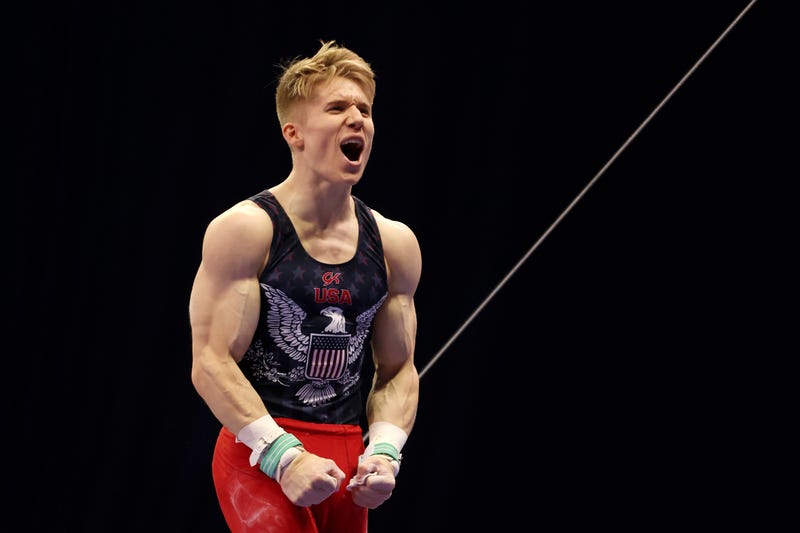
Three Minnesota gymnasts selected to Team USA will compete for gold at the Olympics next month: Shane Wiskus of Spring Park, Grace McCallum of Istani and Sunisa Lee of St. Paul.
WCCO’s Sloane Martin talked to one of their coaches to explore the mentality and journey to become an elite-level gymnast amid uncertainty:
The athletes competing at the Olympics this year had their progress interrupted and trained through the risks and uncertainty of a worldwide pandemic. Shane Wiskus also had to deal with the end of the Gophers’ men’s gymnastics program, a decision that prompted his move to the Team USA training headquarters.
“I think it was probably the best decision I could have made in that moment with everything happening,” Wiskus said Sunday. “With the Minnesota athletic department (decision), I probably wouldn’t have had the greatest training after NCAAs when our whole team was officially cut. If I were to be training there all alone I can’t imagine it would have been that productive.”
Wiskus’s selection was one of pride for his Gopher head coach Mike Burns, who watched from the stands in St. Louis. He couldn’t help but reflect on the end of the 118-year-old program.
“To now in the final year to have a Shane Wiskus who grew up coming to our gymnastic camps in the summer, who grew up competing in the junior meets that we hosted over at The Pavilion, who grew up watching the Gophers when he’s a 10-, 11-, 12-year-old who grew up getting the team poster, who waited in line for 20 minutes to get all the guys to sign it, who grew up wanting to be that guy, and be able to have the next generation of those 10-, 11-, 12-year-olds to look up to him and say, ‘I want to be like him,’” Burns said. “And to have that stop abruptly like a 60 mile per hour car riding into a brick wall? Sorry, can’t have that.”
The 2nd place finisher in the All-Around at NCAAs this season recovered from some bad falls at U.S. Championships to finish third at trials. Burns said his best events are parallel bars and floor exercise and that he competes with “grit.”
Burns oversaw firsthand what it takes to be the highest level of gymnast. He said Wiskus came to the program with a mindset bent on hard work because success is not just reps in the gym but discipline in all parts of life.
“You have to be willing and able to do things outside the gym on your own that are going to help you get a better handstand, you know, work on your flexibility, continue to work on your rehab so you’re not getting injured,” Burns said. “These are all the kinds of things that he was willing to do.”
Burns compared gymnastics competition to a scene in For the Love of the Game where the pitcher played by Kevin Costner tunes everything out in the stadium to focus on the batter. It’s the same in gymnastics: the gymnast in the zone with the apparatus. The mental part of gymnastics goes hand in hand with talent.
“That was the biggest thing we had to work on when he came in, like, ‘Don’t be dissatisfied when one out of 10 things might have gone a little poorly because, guess what, nine out of 10 things went really well,’” Burns said. “If you’re not willing to give yourself a little credit you’ll never have any kind of sense of satisfaction in what you do on a daily basis.”
The grueling daily work, the sacrifices, the move -- it all is paying off for Wiskus.
“Making an Olympic team makes everything worth it,” Wiskus said. “All the things that I’ve been through, the ups and the downs, it’s just been a crazy ride. Especially this last year’s probably been the toughest having our athletic department cut our program, moving to Colorado and all these changes. You always make decisions based off how they might play into making an Olympic team.”
